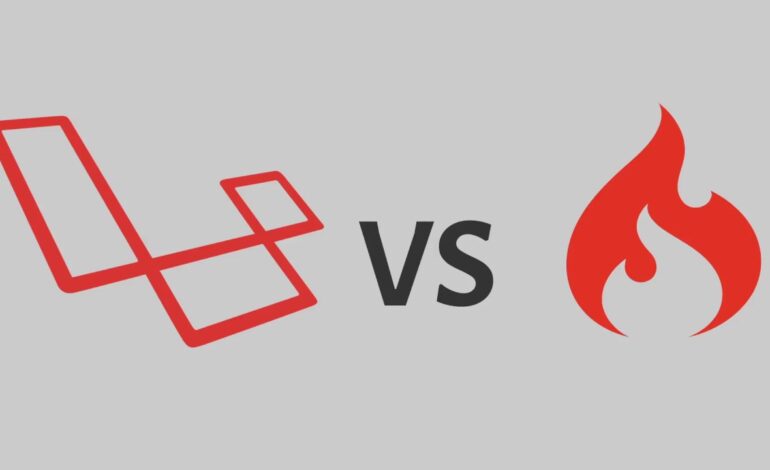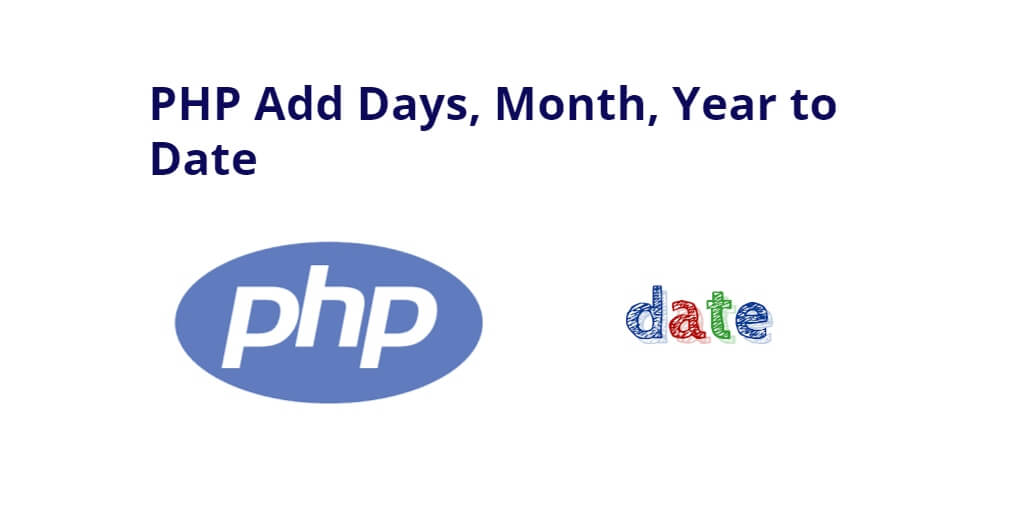Which is a Better PHP Framework? Laravel or Codeigniter
Some countless features and packages support myriads of facilities on both the platforms. Made for built-in web development projects, functionalities that are a vital ingredient of the World Wide Web, PHP frameworks have evolved as a scripting language above and beyond. Countries like India are a rich source of outsourced jobs that require such skills, and learning what is going to be more useful in the coming future, is surely going to add some good paychecks to your salary.
A quick overview and brief discussion of relevant points that make CodeIgniter and Laravel good and bad for the PHP development are given below. If you are wondering what your choice should be, keep reading.
How Did We Get Here? A Brief Overview
The flexibility of using an open-source language, free to use the platform, and MVC patterns is a great luxury. If there are tons of utilities and libraries that help you go forward with your project faster than someone else, these results are appreciated. When you code in PHP, it is essential to avoid being monotonous and repetitive. That’s where creative frameworks like Laravel, CakePHP, CodeIgniter, Zend, Symfony, etc. came to the market.
While it started with just a few bunches of tools, the projects that saw more likeness and love grew faster. Today, PHP frameworks are used to create a strong foundation and speed up the development process. That is, it helps perform repetitive tasks with the help of a substantial library of tools, pre-built, and compiled scripts, and so on. It helps by saving a lot of human resources, working hours, and therefore money. That comes with stability and compatibility as well, so that there is a single standard in the industry.
The following are regarded as some of the best in the industry right now.
- CodeIgniter
- Laravel
- Zend
- CakePHP
- Symfony
There is no particular order, and it varies from region to region, office to office.
Let’s Talk about Laravel, as a PHP Framework
It is a framework that is one of the first contenders of next-gen PHP development tools. The popularity of this framework is increasing rapidly, and features like good routing, migration support, blade tempting, authentication support are some of the things that are crucial in this effort. Laravel is not just about beautiful web applications, it is also about well-documentation, and that is excellent guidance.
Below are some of the critical things that speak in its favour, over others.
- It comes with a simple to use and modular service for the Blade templating engine.
- Authentication is an easy feature with built-in caching support and mechanism for compatibility.
- It allows users to integrate third-party services easily as well, becoming a flexibility major.
- Further, effective control of sessions is handy.
- In all, it has better IO capabilities, to say, and that is a blessing.
- Finally, the open-source MIT license means the source code is available at GitHub, something which proprietary services will never be able to do.
Let us see more closely, why Laravel is the choice for businesses around today, and probably why further down the line; it will be a better skill to learn.
eCommerce Package
This is something that takes the frustration out of the equation. Bagisto and AvoRed are known to be the most recommended packages in this regard. With assistance for drag-and-drop processes, developers can practically do a lot of stuff just like in WordPress. When you choose a reliable Laravel development company, you also know that they will be sharing the complete framework with you.
SEO Packages
If anything speaks more web development-friendly, it is SEO, built-in. Laravel Meta manager comes with SEO able, SEOTools, Laravel-SEO, AutoMeta, Laravel CMS, and many more. There are so many beautiful packages that allow SEO built-in that you don’t have to depend on third-party. Even if you did, you are not alone and help them right away. It guarantees a sudden rise in site visits and rankings.
Admin Panel
Another effective way to have an online presence is by using a robust admin panel, and Voyager is the best tool out there. Laradmin has support for Voyager, and developers can easily integrate it within their existing framework without any hassle. It just takes a couple of minutes, at most.
Laravel Collections are the best selling B2B websites, and they are evolving rapidly as the web changes it. More exhaustive libraries, pretty robust templates, and maintenance and support round the clock is always beneficial.
Reference Books:
Laravel
Laravel: Up & Running: A Framework for Building Modern PHP Apps
The Laravel Survival Guide: Written & Updated for Laravel 5.3
Codeigniter
CodeIgniter Web Application Blueprints
The Complete CodeIgniter Tutorial: Included with Project Examples
Pros & Cons of Laravel
Pros
- Blade templates guarantee elegant solutions to HTML and no spaghetti code.
- All the security requirements comply for a modern site.
- Its frameworks are better in creating enterprise solutions.
- With relational objects and structures, business solutions are handier.
- Better documentation is the key to high-end libraries.
Cons
- There are inconsistencies with Query Builder and ORM.
- Laravel development doesn’t support legacy systems well.
- You might find a heavy dose of bloatware that can cause problems.
Let’s Talk about Codeigniter, Another Next-Gen Contender
A PHP framework that is simple and faster to learn is right here. It is always advisable for all to start with this framework. The main objective is still to start slow and small and then to scale up the solution. New and experienced CodeIgniter developers can work hand in hand to provide a rich set of libraries, use them, and develop them, and offer solutions for their clients. The CodeIgniter platform offers a friendly interface, to assess libraries, and one of the apparent benefits of using these in comparison with Laravel is it minimizes the amount of learning you have to do, and the amount of code you have to write.
Actually, for any given task, the CodeIgniter platform requires relatively less code to build than Laravel. Compare this to something like Python vs C++. Apart from large scale web development applications, this framework is recommended for shared accounts and shared projects. It ensures a smaller footprint. But, CodeIgniter does not follow the MVC pattern strictly like Laravel and does not assist in complex functionalities, so easy work is right here. Adding complicated things third-party plugins is not possible, or utterly complex.
The best feature of this platform as a next-gen PHP framework comes from its friendliness. I list the main points below.
- Codeigniter offers excellent security with XSS filtering, which is considered a big deal.
- The lightweight and small footprint framework is appreciated and offers a tiny data encryption module.
- It is search engine friendly with URLs that are indexed easily by Google, Yandex, Baidu, etc.
- With an in-built class manager, calendar, templates, and stuff, the session manager is complex. It helps in unit testing.
- Errors and other logs are always appropriately maintained, and the manipulation library is also updated on the fly.
But, with these features, what makes CodeIgniter better than Laravel? Why should a business opt for this framework than Laravel, when it has such considerable support?
- It helps CodeIgniter to be a neat, clean, small friendly framework that you can understand easily and learn to code quickly.
- It has simple routines, methods, and is well-structured. It has a simple routing method, as well.
- With more robust and better quality support and stability, this is the right choice.
- Like Laravel, it also allows the caching of websites, and this means increased performance and faster loading time.
With such benefits, businesses find it quicker to use CodeIgniter, than Laravel, especially startups, small and medium enterprises, and more.
What is the Benefit of Codeigniter? How does it Hold Up on its Own?
We list the positive and negative aspects of this PHP framework; it is own. Being a framework, it has some upsides and downsides; for example, some elements that make it faster, also makes it less flexible.
Pros
- We see that this particular platform has a lesser need for storage here. It includes only 256 MB of size, and you can start your work now.
- It makes it more suitable for fast and scalable projects, where startups and small businesses are the primary targets.
- Easy to learn, and the simple structure helps developers learn quickly and speed up development.
Cons
- The bad things about this include a lack of a global template for library offerings.
- It makes future maintenance of projects complex and utterly difficult, a severe headache to have. Then you might have to rewire a lot of the code.
- There is no support for modular separation as well, that can quickly obliterate the project’s structure.
Which of Them, Laravel or Codeigniter, is More Popular?
The popularity of a framework comes from its facilities and features. As far as the statistics show, both the frameworks are on their own very influential. They help you get rid of the severe pain of writing too much repetitive code, integrate complex routines, in a matter of minutes. Google Trends is an estimator that analyzes the social trend for learning PHP as a new skill. It measures from several data bits, which parts are more important than the other, and which ones are less important.
In the past 12 months of monitoring, CodeIgniter has been almost constant from September 2019 through March 2020 till September 2020. It has been an average trend for CodeIgniter with ratings below 25 marks. At the same time, Laravel has been above 75 throughout this period. Yes, there was tremendous variability in this score, and it dipped to 63 in Dec 2019, when CodeIgniter was 11. It rose as high as 100 on March 1, 2020, when CodeIgniter reached 14, not its highest peak. In general, CodeIgniter seems to lose the turf for a more flexible, open-source, and integrable system. Even though it is a bit difficult to learn at the beginning, once you master it, you are skilled to develop complex web development projects.
Besides that, 117,809 websites built using CodeIgniter till this date while Laravel reigns a marginal supreme here with 132,687 websites. These are majorly from developing countries that outsourced labour comes from, such as Brazil, Russia, India, UK, and Japan. As per GitHub report shows that 1.5% of questions asked regarding Laravel. Still, the community involvement for CodeIgniter remained well below 0.2%, which shows that the developers are going after Laravel because it is open-source and free. They can learn it at their own pace, and with support.
Conclusion
To give a fair conclusion to the trend, and which PHP framework might be the best for 2020 and beyond, their options are dual. If you are working in a startup, they might already have a framework in hand. If you are a developer tasked to select one, go for both. For quick and faster prototyping, use CodeIgniter, but train your staff with Laravel, so that after the first deadline, we can the scale frameworks quickly and add complex functionalities. It is an optional thing that depends on the success of the former.




